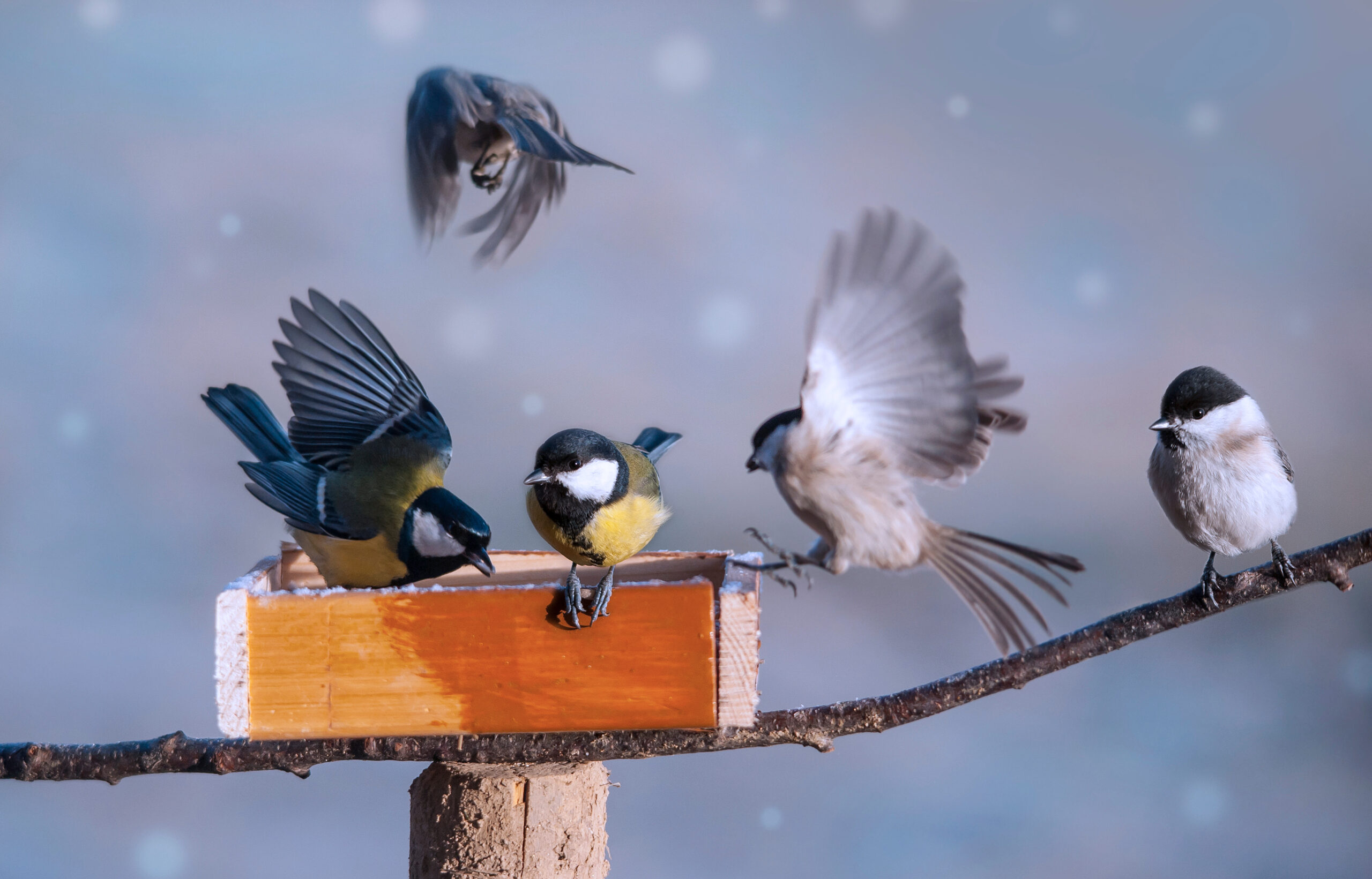The Best Wild Bird Foods for your Garden This Winter
Winter is an important time of year for bird feeding and offering the right foods can help keep your local wild bird population thriving during the colder months.
Here we’ve highlighted some of the best bird foods to use in your garden during this wonderful winter season.
Sunflower Hearts and Chips
Sunflowers are quickly becoming one of the most popular wild bird foods here in the UK. These versatile little seeds are fantastic to feed over the winter as they’re high in healthy oils and protein to keep our wild birds fuelled up during a challenging time of year.
Sunflower Hearts are de-husked Black Sunflower Seeds which means they don’t have a hard, outer shell for birds to chip off and they don’t leave any waste in your garden. The inner hearts are lovely and soft, making them ideal for soft-billed birds, birds with small beaks and young birds or fledglings.
Feed them: In standard seed feeders or on bird tables.
Good to know: Goldfinches love sunflower hearts so these are our number 1 recommendation if you’re trying to attract Goldfinches to your garden.

Live or Dried Mealworms
Mealworms are a firm favourite with our customers. Packed full of protein, mealworms are ideal for ground feeding and insectivorous birds whose natural food sources are scarcer in the winter.
Dried Mealworms are the more cost-effective option with a longer shelf life and better value when you buy in bulk. Our top tip is to soak them in warm water for around 30 minutes before you put them in your garden. This way you can rehydrate them, make their skin softer to digest and double the moisture content for your garden birds (just make sure they don’t turn into little ice cubes in freezing temperatures!)
Feed them: Straight on the ground, on bird tables or in ground feeder trays or bowls/dishes.
Good to know: Mealworms are a favourite with Robins and other ground feeding birds.

Suet Pellets
Pellets made using high-quality beef suet are a great energy source for wild birds in the winter. Good quality suet pellets will include more than just suet and wheat flour. Look out for nutritious ingredients like peanut flour and oyster shell (a great source of calcium) as well as added insects, mealworms or fruits that can also offer an extra boost of protein and nutrients.
Feed them: On tables, straight onto the ground and in mesh or tray feeders.
Good to know: Birds don’t chew in the same way that we do, instead they break up their food and swallow it whole. Using shorter and thinner suet pellets makes it easier for birds to nip off and digest smaller pieces.

Peanut Granules
Peanut Granules are a fantastic source of natural oils and proteins for wild birds. Their small size makes them great for a variety of birds and they can be easily mixed into existing seed mixes for a boost of extra nutrition.
Feed them: In a seed feeder, on bird tables or simply sprinkle on the ground. Peanut Granules aren’t seeds so you don’t run any risk of unwanted plants sprouting.
To find out more about Ivel Valley Bird Food, our solar-powered Bedfordshire farm and homemade products, visit www.ivelvalleybirdfood.co.uk.
Click here to save 15% when you spend £50 or more.
Excludes Dried Mealworms and discounted products.

ADVERTORIAL





















